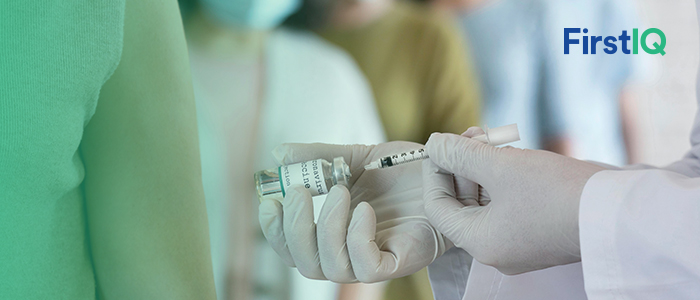India’s HPV Drive: A Launchpad for the Preventive Healthcare Industry Revolution

Cervical cancer remains the second most common among Indian women, despite being the most preventable type of cancer.
'NARI SHAKTI' in the Interim Budget 2024-25 is an initiative by the Government of India that has accelerated the momentum of prevention of cervical cancer. In February 2024, Finance Minister Nirmala Sitharaman in her annual budget speech said, "Government is focusing towards prevention of cervical cancer by vaccinating girls of age range 9 to 14 years old.”
In addition, Philanthropist and author Sudha Murty, said, "Government driven vaccination program benefits and protects women from cervical care as prevention is better than cure".
In a significant move, in January 2023, Serum Institute of India launched CERVAVAC. It is the first indigenously developed HPV vaccine, hence marks as an important step towards public health.
Accelerating towards the Elimination of HPV in India: Key Initiatives and Milestones
- June 2025: Rainbow Hospitals launched Adult Vaccination Outreach Network (AVON), with an aim to offer HPV vaccine to prevent severe infections.
- February 2025: An initiative led by the Indian Medical Association and the Federation of Obstetric and Gynaecological Societies of India aims to train more than 50,000 physicians across the country in fighting the HPV virus via education as well as implementation of the HPV vaccination.
- February 2025: A free vaccination drive was launched in Bengaluru and Hyderabad. It was for the adolescent girls who belong for economically weaker section, with an aim to curb the high prevalence of cervical cancer in India.
In reference to vaccinating young girls, Dr Monika Pansari, Senior Consultant Surgical Oncology, Fortis Hospital Bengaluru, said, "Vaccination of girls in the adolescent age is important as it ensures long term prevention and also helps in protecting girls against deadly virus of HPV."
- October 2024: India with other countries, such as Australia, U.S. and Japan launched QUAD Cancer Moonshot Initiative, with an aim to advance the elimination of this chronic condition, caused by the HPV.
In September 2024, Prime Minister Narendra Modi stated that, “India aims to contribute 40 million doses of vaccines for the countries located at the Indo-Pacific region, which will bring ray of hope among millions of people and will also signify a human-centric approach”.
- September 2024: DNA Wellness Private Limited in Ahmedabad, announced the investment of USD 23.8 million to establish 100 cervical cancer screening labs across the country, which helps in detection of cancerous cells up to 2 years earlier than the conventional methods such as pap smear.
- January 2024: Federation of Obstetric and Gynaecological Societies of India set up 'Mahila Kavach Kendra', which is a walk-in vaccination centres for girls and women, to enhance the accessibility and reach within communities, with an aim to eliminate the cervical cancer from India.
Such wide range initiatives represent a comprehensive approach for combating such a deadly disease in India, with an aim to provide accessibility, affordability and equitability across the country, with a focus of preventing the hazard caused by the Human papillomavirus.
Impact on Market: Catalysing growth through preventive healthcare innovation
India’s HPV vaccination movement presents as a catalyst for new preventive healthcare economy, with increased vaccination program drive, and digitalization tools for education and outreach. Such combined efforts, offers immense potential for:
- Various pharma as well as biotech firms to invest in R&D as well as supply of HPV vaccine.
- Digital health as well as MedTech platforms for tracking, training as well as awareness of HPV vaccination.
- Private Hospitals and diagnostic networks to align with the screening as well as prevention services.
- Insurance and public-private healthcare models to reduce long-term treatment cost for cervical cancer via early prevention and opportunities to offer preventive health coverage plants.
Such integrated strategy positions India not only to eliminate cervical cancer but also to emerge as a global case study in scalable, market-driven preventive healthcare.





